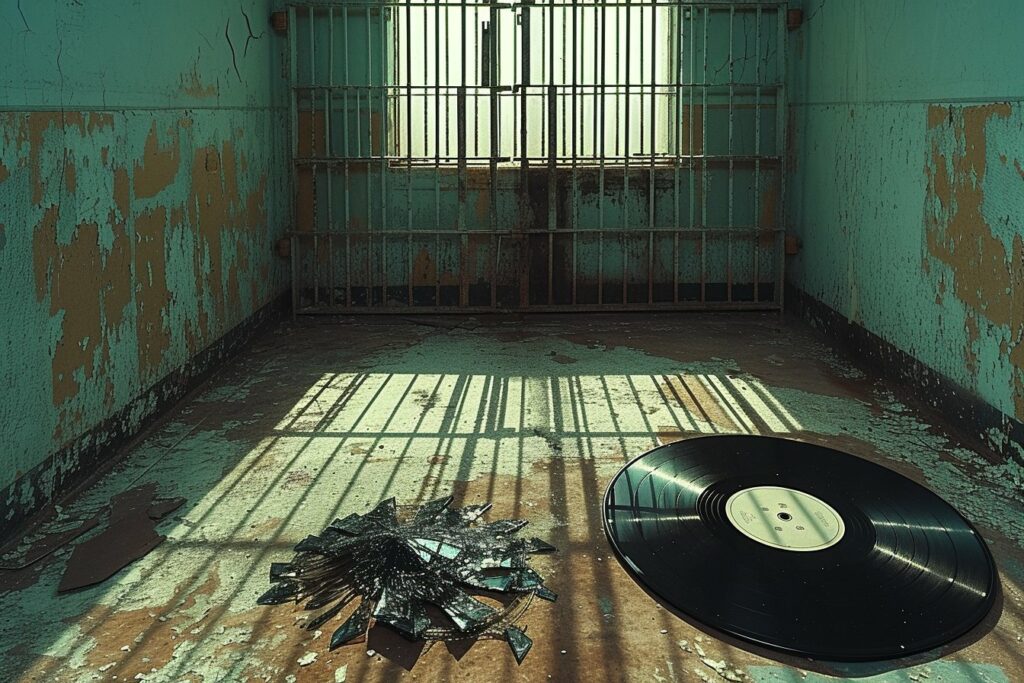In a recent development, convicted singer Gary Glitter was denied release from prison by the UK Parole Board. Despite serving more than half of his 16-year sentence for multiple sexual offences against children, the board concluded that he posed an ongoing risk to society.
Background of the Case
In February 2015, Gary Glitter was found guilty of attempted rape, unlawful sexual intercourse with a girl under the age of 13 and four counts of indecent assault. He was sentenced to 16 years in prison. This decision marked the end of a long and tumultuous career for the singer, as well as held him accountable for his reprehensible actions.
Initial Reports and Early Allegations
The accusations against Gary Glitter first gained public attention after the infamous Operation Yewtree investigation launched in the wake of the Jimmy Savile scandal. As the investigation continued, several victims came forward and detailed their experiences of abuse at the hands of the singer. These revelations not only led to his arrest in October 2012 but also provided compelling evidence for the prosecution during the 2015 trial.
Role of the Parole Board
The Parole Board is an independent body responsible for reviewing the cases of prisoners eligible for parole. They review each case individually and assess whether the prisoner continues to pose a significant risk to the public. When considering Gary Glitter’s application for early release, the board carefully examined all the evidence available, including testimony from the original trial, reports on his behavior while incarcerated, and any potential plans for him upon release.
Criteria for Assessing Risk
In assessing the risks presented by prisoners seeking parole, the board looks at various factors. These include:
- The nature and severity of the offence
- Any patterns of harmful behavior
- The prisoner’s understanding of their actions and the impact on victims
- The capacity to change and engage in interventions
- Potential risk management plans upon release
In Gary Glitter’s case, the board determined that he continued to pose a significant risk based on these criteria. As a result, his application for parole was rejected, and the singer will remain in prison until he has served at least two-thirds of his sentence.
Lifespan of Sentences and Possibility for Parole
When an offender like Gary Glitter is given a determinate sentence, they can apply for parole once they have completed half their term. However, this does not guarantee their automatic release. Instead, prisoners must demonstrate their suitability for early release by outlining how they would manage the risk they pose to society.
Conditions of Release
If a prisoner is granted parole, they will be subject to certain conditions during their release, enforced through a licence. These conditions may include limitations on where they can reside, restrictions on their contact with certain individuals, and requirements to participate in supervision or rehabilitation programs.
Impact on the Victims
The decision to deny Gary Glitter’s application for parole comes as a relief for many of his victims. Over the years, survivors of his abuse have been forced to relive their experiences in public as details of the case emerged. They have often had to face criticism, doubt, and ridicule, but their resilience ultimately contributed to the singer’s conviction and sentencing.
Importance of Supporting Survivors
For the victims of sexual abuse, achieving justice through the legal system can be a long and difficult journey. However, with support from family, friends, and specialist services like helplines or counselling, survivors can prevail in their battle for recovery. Efforts to increase public understanding of the nature and impact of sexual offences are also crucial to ensuring that these cases receive the attention they deserve.
Continued Monitoring and Future Developments
While Gary Glitter will remain incarcerated for the time being, his case serves as an essential reminder of how society deals with high-profile sexual offenders. The Parole Board’s decision demonstrates the stringent measures in place to prevent the premature release of individuals who continue to pose a risk to the public.
Preserving Public Confidence
In a world where stories of injustice and deception frequently dominate headlines, it is essential to maintain faith in the criminal justice system. Decisions like this help reaffirm the commitment to public safety, offering hope that even powerful figures cannot evade the consequences of their actions.


